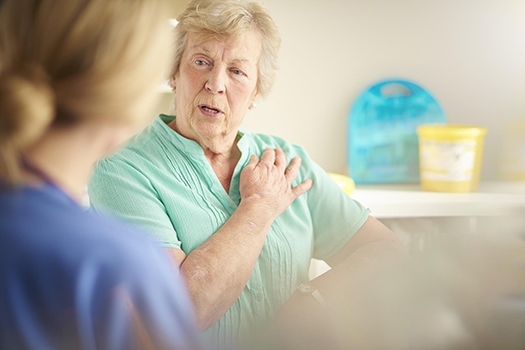Patients with asthma and diabetes told to enter three-month quarantine

Patients with underlying health conditions, including asthma and diabetes, have been instructed by the Government to take extreme measures to shield themselves from the coronavirus (Covid-19), starting this weekend.
Yesterday Prime Minister Boris Johnson said anyone over 70, pregnant women and people with certain underlying health conditions making them more vulnerable to serious Covid-19 complications, should isolate themselves for at least 12 weeks starting this weekend.
The Government has now published a list of the conditions affected, including severe illnesses such as patients undergoing cancer treatment, but also anyone who would normally be eligible for a free flu jab.
The specific at-risk patients are those with:
- chronic (long-term) respiratory diseases, such as asthma, COPD, emphysema or bronchitis;
- chronic heart disease, such as heart failure;
- chronic kidney disease;
- chronic liver disease, such as hepatitis;
- chronic neurological conditions, such as Parkinson’s disease, motor neurone disease, multiple sclerosis, a learning disability or cerebral palsy;
- diabetes;
- problems with the spleen, such as sickle cell disease or if you have had your spleen removed;
- a weakened immune system as the result of conditions such as HIV and AIDS, or medicines such as steroid tablets or chemotherapy;
- being seriously overweight (a BMI of 40 or above).
The Government also went on to list a group of patients who are at even greater risk, saying these will be contacted specially by the NHS with more stringent measures they should take. For now, they are told to ‘rigourously follow’ social distancing advice.
The groups most at risk are:
- People who have received an organ transplant and remain on ongoing immunosuppression medication
- People with cancer who are undergoing active chemotherapy or radiotherapy
- People with cancers of the blood or bone marrow such as leukaemia who are at any stage of treatment
- People with severe chest conditions such as cystic fibrosis or severe asthma (requiring hospital admissions or courses of steroid tablets)
- People with severe diseases of body systems, such as severe kidney disease (dialysis)
At yesterday’s daily coronavirus briefing, chief medical officer Professor Chris Whitty said they hope the 12 weeks will cover the peak of the virus outbreak in the UK, but could end up lasting longer.
Prime Minister Boris Johnson said people in at-risk group should shield themselves away from social contact, only leaving the house for exercise, during which they should keep their distance from others. If at all possible, they should have their essential items brought to them.
In the unprecedented message, all members of the public were urged to avoid non-essential contact with others in a bid to delay the spread of Covid-19 until the NHS is prepared.
Social distancing measures the public is urged to undertake include working from home where possible; avoiding large gatherings, including in public venues; only engaging in essential contact; and entire households staying at home for two weeks if just one member displays symptoms such as a continuous cough or high temperature.
Speaking in Parliament yesterday, health secretary Matt Hancock noted that these nationwide proposals are unprecedented in peacetime and urged people to look out for the vulnerable members of their community.
Patients advised to stay home for 12 weeks from this weekend
- Those aged 70 or older.
- Those with an underlying health condition listed below (i.e. anyone instructed to get a flu jab as an adult each year on medical grounds):
- chronic (long-term) respiratory diseases, such as asthma, COPD, emphysema or bronchitis;
- chronic heart disease, such as heart failure;
- chronic kidney disease;
- chronic liver disease, such as hepatitis;
- chronic neurological conditions, such as Parkinson’s disease, motor neurone disease, multiple sclerosis, a learning disability or cerebral palsy;
- diabetes;
- problems with the spleen, such as sickle cell disease or if you have had your spleen removed;
- a weakened immune system as the result of conditions such as HIV and AIDS, or medicines such as steroid tablets or chemotherapy;
- being seriously overweight (a BMI of 40 or above).
- Those who are pregnant.
People at even greater risk:
- People who have received an organ transplant and remain on ongoing immunosuppression medication
- People with cancer who are undergoing active chemotherapy or radiotherapy
- People with cancers of the blood or bone marrow such as leukaemia who are at any stage of treatment
- People with severe chest conditions such as cystic fibrosis or severe asthma (requiring hospital admissions or courses of steroid tablets)
- People with severe diseases of body systems, such as severe kidney disease (dialysis)
Source: UK Government
Visit Pulse Reference for details on 140 symptoms, including easily searchable symptoms and categories, offering you a free platform to check symptoms and receive potential diagnoses during consultations.









